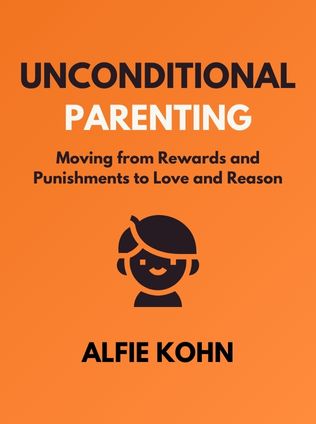
Unconditional Parenting
Moving from Rewards and Punishments to Love and Reason
By Alfie Kohn
Published 01/2005
About the Author
Alfie Kohn is a prominent author and lecturer who has made significant contributions to the fields of education and parenting. With a profound understanding of human psychology and behavior, Kohn has authored 14 books that challenge conventional wisdom. His approach is rooted in the belief that traditional methods, particularly those focused on rewards and punishments, are fundamentally flawed. Instead, he advocates for a more compassionate, understanding, and unconditional approach to parenting and education.
In "Unconditional Parenting," published in 2005, Kohn presents a revolutionary perspective that has influenced many within the "gentle parenting" movement. His ideas have sparked debate, praise, and criticism, yet they remain a cornerstone for those seeking to foster autonomy, empathy, and genuine self-esteem in children.
Main Idea
The central thesis of "Unconditional Parenting" is that traditional parenting techniques, which often rely on rewards and punishments, are not only ineffective but can be damaging to a child's emotional and psychological development. Kohn argues for a shift towards unconditional parenting, where love, acceptance, and support are given freely, without being contingent on a child's behavior. This approach prioritizes the relationship between parent and child, focusing on long-term goals such as developing empathy, autonomy, and a healthy sense of self, rather than short-term compliance.
Table of Contents
- Introduction to Unconditional Parenting
- The Problems with Conditional Parenting
- The Solution: Unconditional Parenting
- Guidelines and Techniques for Unconditional Parenting
- Conclusion
Introduction to Unconditional Parenting
In the early sections of the book, Kohn lays the foundation for his argument against traditional parenting methods. He notes that most parents share similar long-term goals for their children: they want them to be happy, independent, confident, and creative. However, he cautions that in the pursuit of these goals, it is easy to become entangled in the immediate concerns of whether a child is behaving "good" or "bad."
Kohn criticizes the common disciplinary frameworks that hinge on rewards and punishments, suggesting that they inadvertently make children feel that their parents' love and approval are contingent upon their behavior. This conditional regard can lead to significant emotional harm, as children may come to believe that they are only worthy of love when they meet certain expectations.
As Kohn poignantly states,
"Children should never feel that their worth is dependent on their ability to comply with a set of arbitrary rules." – Alfie KohnInstead, he advocates for an approach that views children as active participants in their development, capable of understanding and contributing to their own growth when given the proper support and environment.
The Problems with Conditional Parenting
Kohn identifies several critical issues with conditional parenting techniques, which rely heavily on rewards and punishments. He argues that these methods are rooted in an outdated psychological theory known as behaviorism, which is more suited to experiments on animals than the complex emotional lives of human children.
Sign up for FREE and get access to 1,400+ books summaries.
You May Also Like
The Subtle Art of Not Giving a F*ck
A Counterintuitive Approach to Living a Good Life
By Mark MansonRich Dad Poor Dad
What the Rich Teach Their Kids About Money - That the Poor and Middle Class Do Not!
By Robert T. KiyosakiHow To Win Friends and Influence People
The All-Time Classic Manual Of People Skills
By Dale CarnegieFreakonomics
A Rogue Economist Explores the Hidden Side of Everything
By Steven D. Levitt and Stephen J. Dubner



















